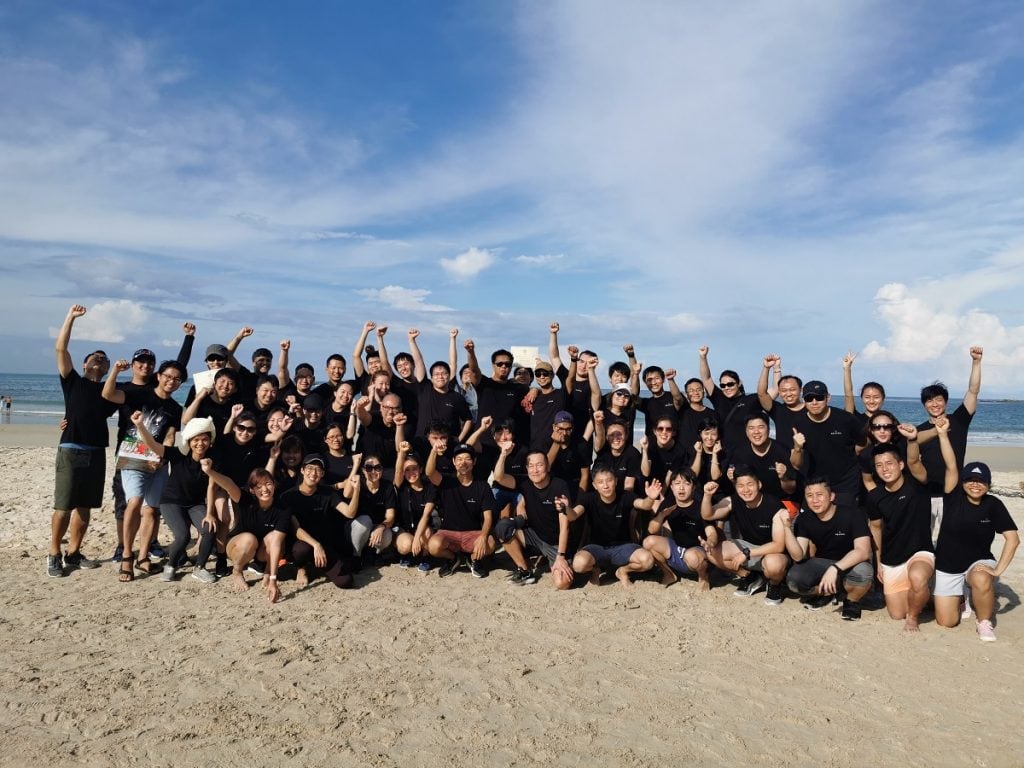As one of the youngest and fastest entrepreneurs in Japan to reach an IPO for a startup, Shuhei Morofuji shares how a journey fuelled by curiosity led the way to success.
One’s twenties are often remembered as a time of uncertainty and struggle, but by the time Shuhei Morofuji was 25, he was laser-focused in leading his startup, SMS Co Ltd, to an IPO in just five years. Pleasantly surprised at how well SMS, a website operator focusing on elderly care, did, Morofuji realised his true passion was in trying to understand and manage complex things in an equally complex yet structured way.
After 11 years serving as SMS’ CEO, Morofuji indulged his curiosity by starting Reapra, a venture builder and investment group based in Singapore. Rather than become just another opportunistic, profit-chasing investing machine, Morofuji is in it for the long haul with the founders Reapra chooses to work with. We sit down with one of Japan’s brightest sparks — and one of The Great Room’s newest tenants — to pick his brains on the skills that got him this far.
When did your entrepreneurial flair first reveal itself?
I don’t believe that my talent emerged all of a sudden at any point in time. However, I do think that my innate sense of curiosity, present since childhood, played a crucial role. This means I have a tendency to not only view reality as complex, but to also fit it into a high complex environment, where it can only be unravelled by learning over time. Learning through experience in this environment cultivated my skills and talents as an entrepreneur.
So what was the impetus for founding SMS?
The economic bubble burst during my college days and seeing large companies go out of business shocked me. That was when I realised that landing a job at a big firm does not ensure job security, and considered starting my own. By my fourth year in university, I noticed how everyone was talking about the increasing aging population of Japan, and realised that the elder care industry was still small, but represented a high growth trajectory. After graduating, I found a job but left shortly after to start SMS in 2004.

Were there any life experiences that contributed to your success?
Somewhat paradoxically, I believe my lack of noteworthy life experiences in the past may have led to my success. I never excelled in my studies and I had a self-concept that I was nothing. Because of this foundation I wanted to see reality as complex, and I believed starting a business would achieve this.
What was the biggest mistake you learned from on your journey?
Not addressing human resource development in the early stages of SMS. As I was doing business in an industry of high growth, the size of the company was rapidly expanding. Regardless, I focused only on the product and not on the organisation that would support it. But this realisation helped the company grow even after I leave. As such, when Reapra was established, I aimed to create and environment where I could not only learn and grow by myself, but also where the people around me could grow together.
Grit and resourcefulness tend to be qualities those in business would like to nurture. What other characteristics do you find invaluable?
I refer to these necessary qualities as the “mastery of co-creating with society”. And it is present not just in entrepreneurs, but in anyone who is able to make an impact on society. It means that to be a market leader, you must first understand your own identity, and then improve on your proficiency through experiential learning.
So you believe that such qualities can be learned?
The question of what is inborn and what is acquired is contentious in academia but I personally believe that the desirable qualities of an entrepreneur can be largely acquired. I used to think of myself as a “nobody” but with the multitude of experiences that come with setting up a company, I learned to overcome my weaknesses and developed an entrepreneurial nature. Moreover, I don’t think there are many people who are born with the aforementioned “mastery” at a high level anyway. That’s why Reapra accompanies the transformation of the individual through hands-on support.
It’s important to unwind to avoid burnout. Do you have any daily rituals that help you stay sane?
I have two. Before I go to sleep and after I wake up, I reflect on the day and come up with whatever measures I need because I can organise my thoughts better during those times. My other routine is to simply walk because that too, helps my thinking process. Sometimes I walk two hours a day. I also have a personal rule not to work on holidays, as I like to spend them fishing and playing with my children.
